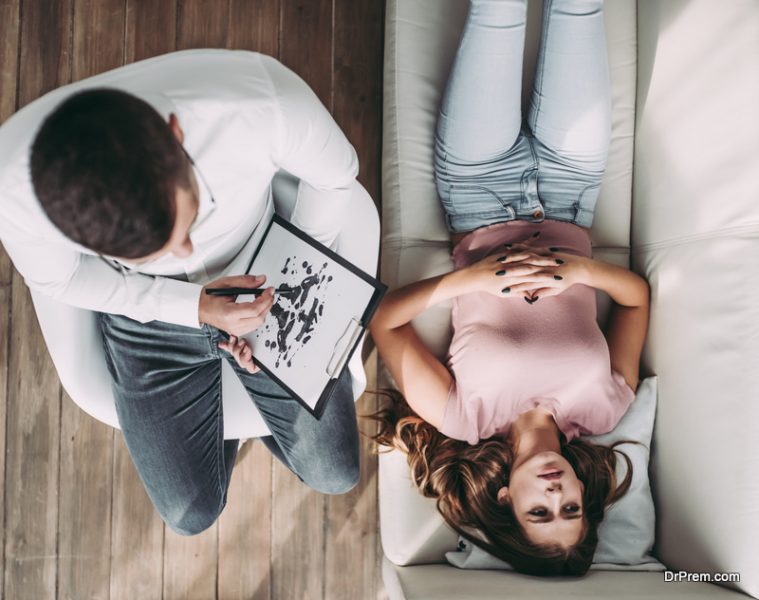You must be seeing a therapist in order to get some help with your problems in life. In most cases, therapists help to resolve problems not create them. The relationship between you and your therapist is a very sensitive one as well as intense. After all, your therapist is the only person in the world who knows all your nightmares, dreams and past and present experiences. If he or she betrays your trust in any way, or there is a strain in the relationship, maybe it’s time for a change. Here are the signs of a bad therapist you need to watch out for:
10 – Signs of a bad therapist
1. Your life should improve
 After undergoing therapy for some amount of time, your life should improve. You should not go through the days waiting only for the therapy sessions. The therapy sessions should not be the only thing you look forward to. If your therapist does not help you discover the strengths, and help you become more resilient, then he/she’s probably not the best therapist around. Your therapist should listen to you, but not in a way that it makes things worse for you. If you feel that you cannot face life without your therapist, then the counseling is not working.
After undergoing therapy for some amount of time, your life should improve. You should not go through the days waiting only for the therapy sessions. The therapy sessions should not be the only thing you look forward to. If your therapist does not help you discover the strengths, and help you become more resilient, then he/she’s probably not the best therapist around. Your therapist should listen to you, but not in a way that it makes things worse for you. If you feel that you cannot face life without your therapist, then the counseling is not working.
2. You have to save money to pay for the sessions
Therapy, as everyone knows is expensive. A sign of a good therapist is that he helps to improve your quality of life, and help to make good decisions. This includes making better decisions regarding finances too, which might include reducing or stopping expensive therapy. A bad therapist will not think twice before taking your money, even if he knows that you’re having money problems. The ethical thing to do on the part of your therapist is to refer you to community clinic which costs less. If he does not show any concern for you, then you should know that you need to change your counselor.
3. Your relationships and social interaction should improve
 If your relationships do not improve, or you have started to ignore your friends and your therapist has become your only confidant, then maybe you should look for a better counselor. During therapy, you may realize that your relationships are not healthy for you. Maybe someone may have been draining your energy, or they were one sided relationships. So you may want to get rid of those relationships, but you have to make new friends and new who are good for you. There might be a shift in your social relationships, but a bad therapist will not be able to help you make the transition. A good counselor is one who will encourage you to form friends with whom you can share your good times and bad times.
If your relationships do not improve, or you have started to ignore your friends and your therapist has become your only confidant, then maybe you should look for a better counselor. During therapy, you may realize that your relationships are not healthy for you. Maybe someone may have been draining your energy, or they were one sided relationships. So you may want to get rid of those relationships, but you have to make new friends and new who are good for you. There might be a shift in your social relationships, but a bad therapist will not be able to help you make the transition. A good counselor is one who will encourage you to form friends with whom you can share your good times and bad times.
4. Your therapist does not help to change your perception
A lot of research suggests that therapy works because it can change the way you view the world. It ought to make you positive and reduce/get rid of your fears. Good therapists will help you process your pain and negative feelings and get a new, positive outlook on life. Instead, if your therapist is the one to keep pointing out negatives in your life, then your counseling is not working. Going to a therapist is all about turning your life around, or changing your attitude, and if that is not happening then you really do have a bad therapist.
5. Your therapist does not really listen
 Do you feel as your therapist is doing you a favor by sitting through your sessions? Therapists are supposed to listen attentively to their patients and if they do not make the effort to understand your problems and respond accordingly then you better find someone else who has more empathy.
Do you feel as your therapist is doing you a favor by sitting through your sessions? Therapists are supposed to listen attentively to their patients and if they do not make the effort to understand your problems and respond accordingly then you better find someone else who has more empathy.
6. He/she judges you
Counselors are supposed to be neutral and non-judgmental. They simply cannot look at you and point an accusing finger at you. You may have been already criticized and judged by others, and you don’t to be judged by your therapist.
7. Your counselor tells you to do things
 One of the main outcomes of therapy is to allow people to come to their own conclusions and follow their own course of action. With therapy, you should be empowered to make decisions for yourself. The role of a counselor is to listen considerately, with judging you, and sharing their thoughts about your situation.
One of the main outcomes of therapy is to allow people to come to their own conclusions and follow their own course of action. With therapy, you should be empowered to make decisions for yourself. The role of a counselor is to listen considerately, with judging you, and sharing their thoughts about your situation.
But they would be crossing a boundary, if they tell you what exactly to do. This would create a dependent relation with the therapist, and you will lose the confidence to make your mind up by yourself. It is not ethically correct for a therapist to order you around.
8. Imposing spiritual, political, social and religious beliefs
Your therapist cannot impose his/her belief on you. You are in a vulnerable state of mind, and willing to clutch at any straw. You have to be strong enough to resist and change your therapist if they try to convert you to their belief system. Every single person has a right to follow their own belief, even though they may be facing a bad patch in life.
9. He/she helps you lighten up
 Being serious all the time is not healthy. It’s not for nothing that the saying ‘Laughter is the best medicine’. Your counselor should be the one to motivate you, and teach you to take things a bit more lightly. Humor is one of the tried and tested paths to heal a person emotionally. If your sessions are too rigid, then you really ought to be thinking twice about seeing this therapist again.
Being serious all the time is not healthy. It’s not for nothing that the saying ‘Laughter is the best medicine’. Your counselor should be the one to motivate you, and teach you to take things a bit more lightly. Humor is one of the tried and tested paths to heal a person emotionally. If your sessions are too rigid, then you really ought to be thinking twice about seeing this therapist again.
There will be a lot of crying and tears in your sessions, and it is normal, as you will be releasing a lot of pent up feelings and emotions. This is part of the recovery process and you will be able to bounce back faster from your trauma.
10. Remember, you are not married to your therapist
If you have been going to your therapist for about twenty years, then it means you are totally dependent on your therapist, and he/she has created this dependence. According to Psychologist Associations world over, this relationship is considered as abuse of power.
Therapy should be all about being emotionally and psychologically healed. It may take time, but you have to see it happening after about a month or so. Even the smallest positive changes matter, and if that does not matter, then you should search for a better therapist.



